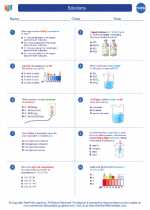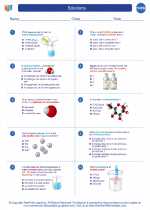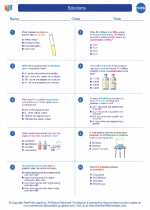Boiling
Boiling is the process in which a liquid changes to a vapor when it is heated to its boiling point. At the boiling point, the vapor pressure of the liquid equals the pressure exerted on the liquid by the surrounding atmosphere. This is why bubbles form and rise to the surface of the liquid when it boils.
The boiling point of a substance is the temperature at which the vapor pressure of the liquid is equal to the external pressure acting on the surface of the liquid. This is why the boiling point of a liquid varies with changes in atmospheric pressure. For example, water boils at a lower temperature at higher altitudes where the atmospheric pressure is lower.
Study Guide
- Definition: Explain what boiling is and the factors that affect the boiling point of a substance.
- Boiling Point: Understand the concept of boiling point and how it varies with changes in pressure.
- Factors Affecting Boiling: Explore the factors that affect the boiling point, such as atmospheric pressure and the nature of the liquid.
- Applications: Discuss the practical applications of boiling in everyday life, such as in cooking, distillation, and industrial processes.
- Phase Diagrams: Study phase diagrams and how they represent the relationship between temperature, pressure, and the physical state of a substance.
Understanding the process of boiling is crucial in various fields, from cooking to industrial processes. Mastery of this topic will also help in comprehending phase changes and the behavior of substances under different conditions.
.


